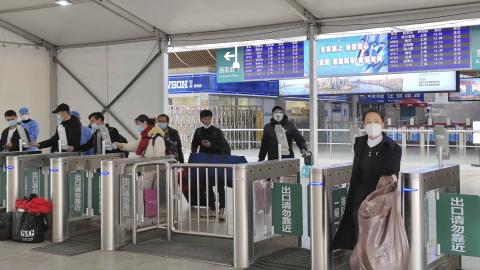Xi Jinping doubtless expected to celebrate the New Year by touting the superiority of his authoritarian economic and governance model. Instead, he is trying to manage a healthcare crisis, a weakening economy, and political protests. These vulnerabilities—each attributable to the Chinese Communist Party under Mr. Xi’s leadership—allow the US to combat the party’s mercantilist policies and debunk its narrative that China’s rise to global dominance is inevitable.
Mr. Xi’s climb-down from his signature zero-COVID policy, and the broad and poorly controlled spread of the virus, has exposed the weaknesses of China’s social safety net. The public demonstrations since November are signs of underlying discontent. The participation of the well-off and normally passive urban populations affirms that Mr. Xi can’t expect to maintain political control if he continues to impose such authoritarian restrictions.















